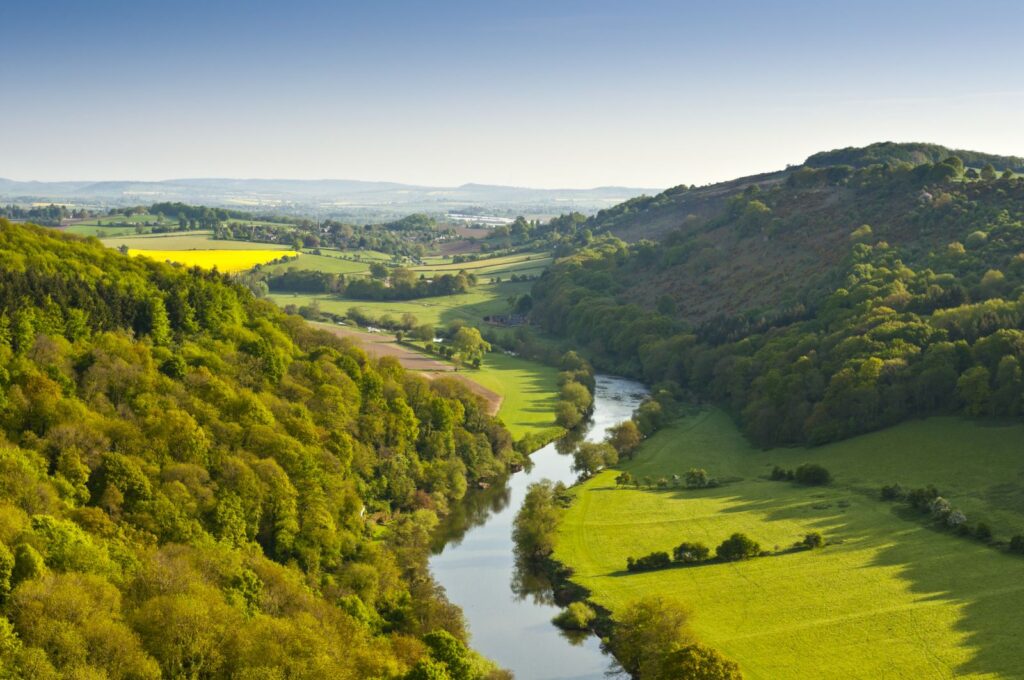Funding to protect and recover landscapes in England launched for farmers
18th May 2023
Under the second round of the Landscape Recovery scheme launched today (18th May), farmers and landowners can apply for a share of £15 million to create new wildlife habitats, restore protected sites and work towards reaching net zero alongside sustainable food production.
Building on the success of the first round of the scheme launched last year, the second round will support up to 25 projects and will be administered by Natural England and the Environment Agency.
The projects will be selected based on their environmental and social impact, value for money and suitability for the scheme.
The focus will be on proposals involving at least 500 hectares, which could include landscape-scale projects creating and enhancing woodland including temperate rainforest, peatland, nature reserves and protected sites such as ancient woodlands, wetlands and salt marshes.
Landscape Recovery sits alongside Countryside Stewardship and the Sustainable Farming Incentive as the government’s Environmental Land Management schemes. It was designed to encourage collaboration and working in partnership to protect and enhance landscapes in England, delivering environmental benefits alongside supporting farmers in feeding the nation.
Commenting on the announcement, secretary of state for food and farming, Thérèse Coffey, said: “Landscape Recovery is one of our three Environmental Land Management schemes which provide the funding and support for farmers in England through the biggest change in a generation.
“The scheme is already supporting 22 inspiring landscape-scale projects across England with development funding and the second round will help more farmers and land managers take collective action through involvement in bespoke projects that will make a real difference in reaching net zero and supporting valuable habitats, while continuing to support sustainable food production.”
Projects that received funding through the first round last year are already demonstrating how food production and environmental delivery can go hand in hand.
The River Axe Landscape Recovery project on the Somerset/Dorset border has brought together 23 farmers, smallholders and landowners, including dairy, beef, sheep and arable farms, to restore a 23.6km stretch of the upper river.
The project will support regenerative farming and extensive grazing on the land neighbouring the river corridor to reduce diffuse pollution, phosphates and sediments entering the river, enhancing water quality.
Dr Tony Juniper, chair of Natural England, commented: “Agriculture has a huge role to play in Nature recovery, ensuring that a thriving natural world is at the heart of sustainable food production.
“I hope that through this scheme more farmers and land managers will join forces, making significant progress towards the statutory Nature targets and providing the food and public goods that our society depends upon.”
Ongoing projects show promise
Alan Lovell, chair of the Environment Agency, welcomed the continuation of the Landscape Recovery scheme, adding the second round presents an opportunity for farmers and land managers to carry out ambitious land-use changes and habitat restoration.
“The round one projects – only launched in September 2022 – are already showing great promise, such as the River Axe project in Devon supported by the Environment Agency to improve the habitats and water quality of the Axe.”
“This second round of Landscape Recovery will take us further down the track toward becoming a nation that is resilient to climate change and rich in ecological diversity,” he added.
The first round of the scheme received a high volume of applications, out of which 22 projects were selected, focusing on restoring England’s threatened native species and improving water quality of streams and rivers.
Specifically, the projects involve creating and enhancing habitats from chalk streams and temperate rainforest to moorland and wetland, restoring over 600km of rivers, and protecting at least 263 species such as water vole, otter, pine marten, lapwing, great crested newt, European eel and marsh fritillary.
Alongside the River Axe project in Devon, works are ongoing in Yorkshire under the Three Dales project, where a consortium of ten farmers, landowners and conservation organisations led by the Yorkshire Wildlife Trust are aiming to restore a large area of the western Yorkshire Dales uplands, creating habitats for species including black grouse, curlew and ring ouzels.
Funding has also been granted to the Darent Valley Farmer Cluster in Kent which is seeing farmers join forces with Kent Wildlife Trust and more local organisations to carry out chalk stream restoration in the Kent Downs Area of Outstanding Natural Beauty.
Guidance on how to apply to the second round of the Landscape Recovery scheme can be found on the government website here.

